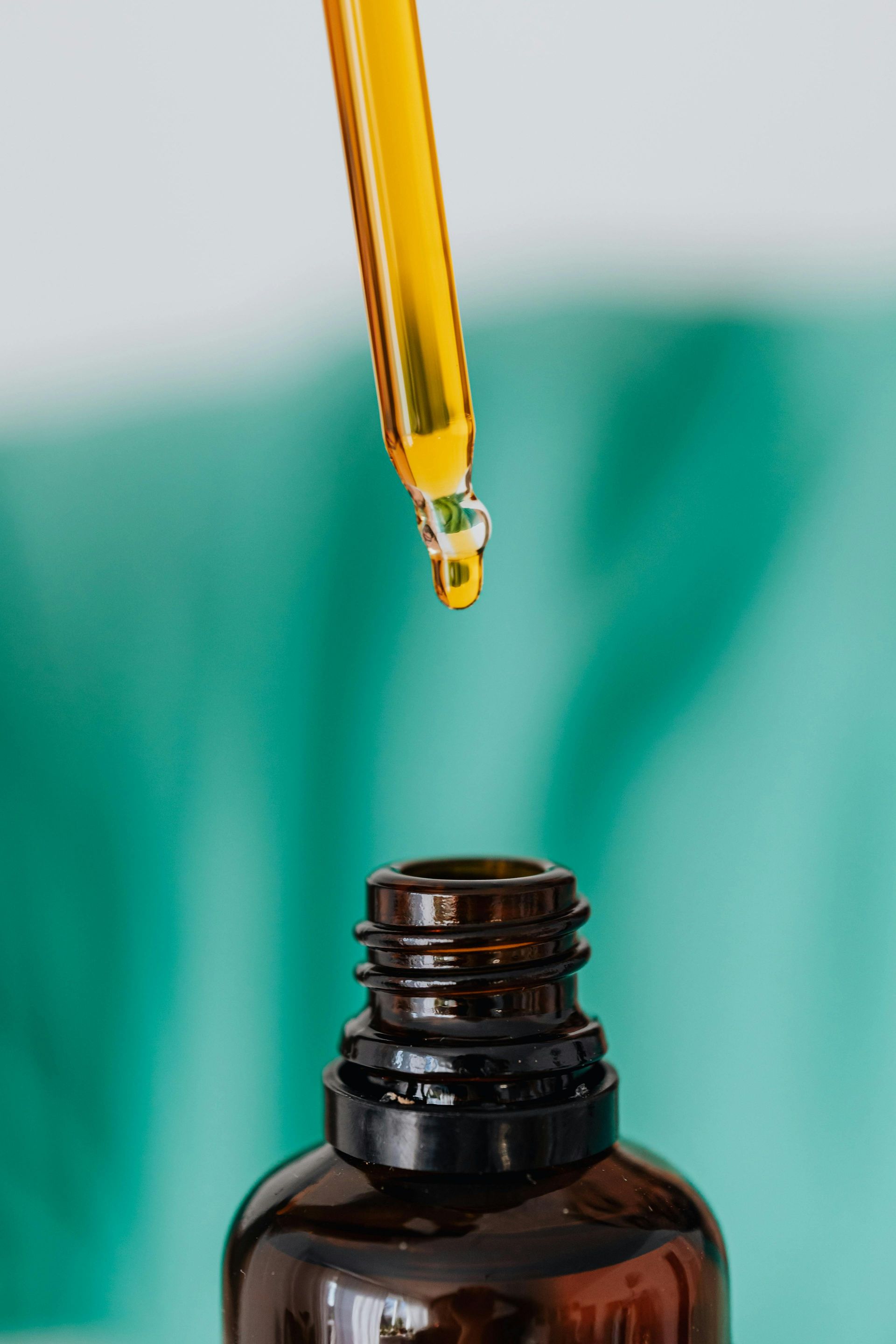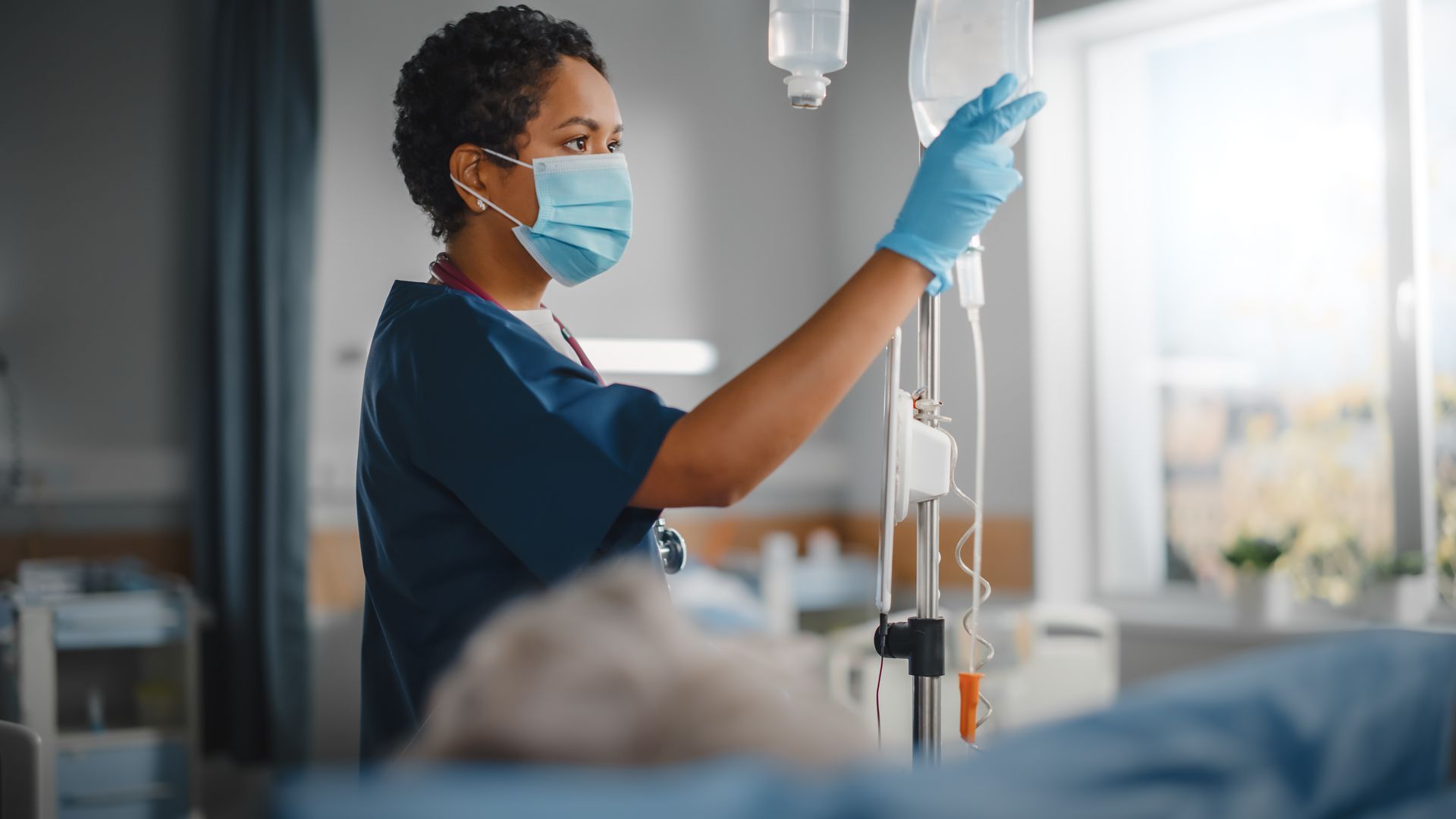How do sterile compounded injectables benefit patients?
Understanding the Value of Sterile Compounded Injectables
In the rapidly evolving landscape of healthcare, sterile compounded injectables play an indispensable role in meeting the individualized and complex needs of patients. As personalized medicine gains traction, these specialized formulations provide critical benefits, addressing unique health conditions, enhancing treatment efficacy, and ensuring patient safety. This article delves into the multifaceted advantages of sterile compounded injectables, highlighting their importance in patient care and health outcomes.
Compounding Pharmacies and Their Benefits

What is a compounding pharmacy and what benefits does it offer?
Compounding pharmacies specialize in creating personalized medications by combining, altering, or mixing ingredients tailored to individual patient needs. This is particularly vital for patients for whom FDA-approved options are unsuitable due to allergies, difficulty swallowing pills, or specific dosing requirements.
-
Personalized Medications : Compounding pharmacists can produce both sterile and non-sterile preparations. For instance, children can receive flavored formulations that make taking medicine less daunting, while elderly patients might benefit from liquid forms that are easier to swallow.
-
Enhanced Adherence : By providing medications in more manageable forms, compounding can significantly improve patient adherence to treatment regimens. For those facing challenges such as polypharmacy, customized regimens can simplify their medication management.
-
Addressing Drug Shortages : In times of national drug shortages, compounding pharmacies play a crucial role. They can prepare alternative formulations, ensuring that patients continue to receive necessary treatments when FDA-approved medications may be unavailable.
Through their essential services, compounding pharmacies foster strong collaborations among patients, pharmacists, and physicians—resulting in better tailored and more effective therapeutic solutions.
| Aspect | Description | Benefits |
|---|---|---|
| Personalized Medications | Custom formulations to meet individual patient needs. | Enhanced adherence and comfort. |
| Addressing Drug Shortages | Preparation of alternative medications during shortages. | Ensures continuity of care. |
| Collaboration with Healthcare | Close relationships among patients and healthcare providers. | Improved therapeutic outcomes. |
The Professionals Behind Compounding

Who is allowed to compound medications?
Compounding medications can be performed by licensed pharmacists and physicians. Typically, this occurs in state-licensed pharmacies or federal facilities that meet specific criteria.
Pharmacists engaged in compounding undergo specialized training to ensure they can create tailored medications according to individual patient needs, especially in cases where standard FDA-approved options are ineffective or unavailable. This process is strictly regulated to maintain safety and quality standards.
Regulations governing compounding practices
In the world of pharmaceutical compounding, two types of facilities operate under different regulations:
| Type | Description | Regulations |
|---|---|---|
| 503A Pharmacies | Compound medications based on individual prescriptions. | State boards of pharmacy regulate these practices. |
| 503B Facilities | Create larger batches of compounded drugs under strict FDA quality standards. | Additional oversight by the FDA is mandated. |
Regulations set forth by state boards of pharmacy govern compounding practices, ensuring that while compounded medications might not meet the same stringent criteria as commercially available drugs, they still adhere to essential safety and efficacy guidelines.
This regulatory framework allows patients to safely receive personalized therapeutic options that effectively address their specific medical needs.
Common Reasons for Compounding Medications
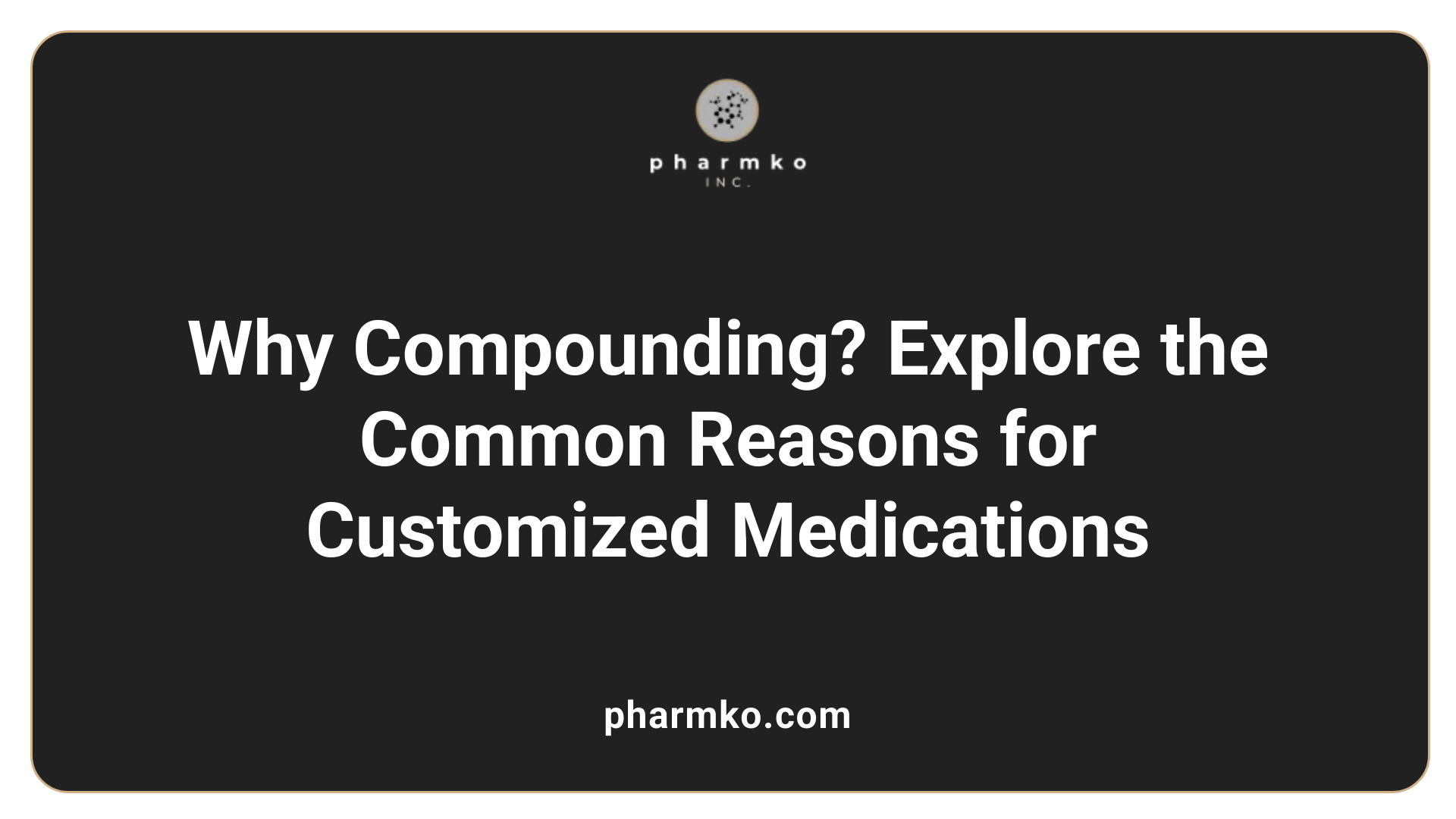
What are some common reasons for compounding medications in pharmacy?
Medications are compounded in pharmacy for several common reasons, primarily to meet the unique needs of individual patients. This includes:
- Personalized Dosage Forms: Compounding allows pharmacists to create customized forms of medications that may be easier to administer, such as liquid solutions or oral disintegrating tablets.
- Adjusting Strengths: For patients requiring specific dosages, compounding pharmacists can prepare medications in tailored strengths, ensuring each patient receives the most effective treatment.
- Removing Allergens: Compounded medications can be formulated without ingredients that patients may be intolerant to, such as lactose or gluten.
Compounding is particularly beneficial for pediatric and veterinary patients , as these populations often require differentiated dosage forms and flavors to aid compliance and easiness in administration.
In times of drug shortages , compounding pharmacists play a vital role by preparing alternative formulations to ensure that essential medications remain accessible to patients. They can also provide specialized hormone therapies tailored to fit individual requirements, showcasing the versatility of compounding in modern medicine.
Addressing Unique Patient Needs
Compounded medications respond directly to the diverse and unique requirements of patients whose needs cannot be met with standard products. Customized solutions are crucial for treating patients with rare conditions or those needing specialized treatments not available in commercial forms. By tailoring medications to fit individual health profiles, compounded drugs enhance therapy effectiveness and patient satisfaction.
Enhancing Medication Adherence
The customization offered by compounded pharmacists significantly enhances medication adherence. By creating formulations that are easier to consume—like flavored liquids for children or syrups for elderly patients—compounding can transform the treatment experience. This increased accessibility ensures that patients are more likely to follow their prescribed therapies, ultimately improving health outcomes. Compounded medications offer flexibility that accommodates dietary restrictions, enhancing patient engagement and commitment to their treatment plans.
Regulations Governing Pharmaceutical Compounding
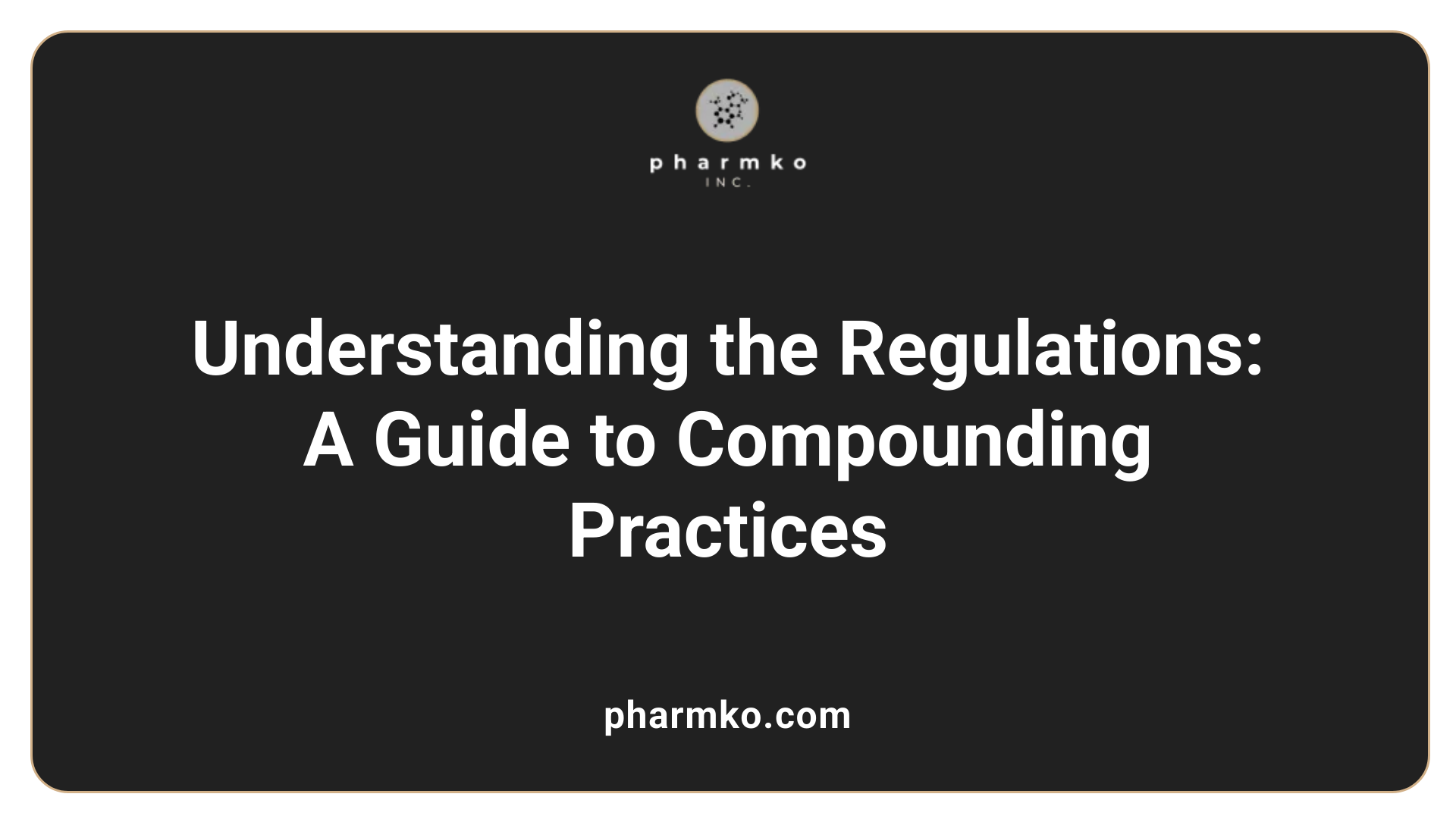
What regulations govern the practice of pharmaceutical compounding, especially for sterile products?
The practice of pharmaceutical compounding, particularly for sterile products, is governed by a combination of federal regulations and industry standards. The USP General Chapters <795> and <797> are fundamental in this context, detailing the necessary requirements for non-sterile and sterile compounding. These chapters focus on various aspects such as facility standards, personnel training, and equipment cleanliness, ensuring the environments where these medications are prepared meet strict safety guidelines.
In addition to USP standards, the Drug Quality and Security Act (DQSA) has introduced specific provisions, especially sections 503A and 503B, which delineate traditional compounding, requiring patient-specific prescriptions, from the operations of outsourcing facilities. The latter are bound by more rigorous manufacturing practices, aiming to enhance safety and efficacy for patients.
It's essential to keep in mind that compounded drugs do not undergo FDA approval. This means they haven't been evaluated for safety and effectiveness before reaching the market. While state regulations primarily supervise compounding practices, the FDA still plays a crucial role in enforcing compliance, inspecting facilities, and ensuring patient safety through its compounding program. These guidelines collectively seek to minimize risks and maintain high standards in the preparation of compounded medications.
Safety and Necessity of Sterile Compounded Medications
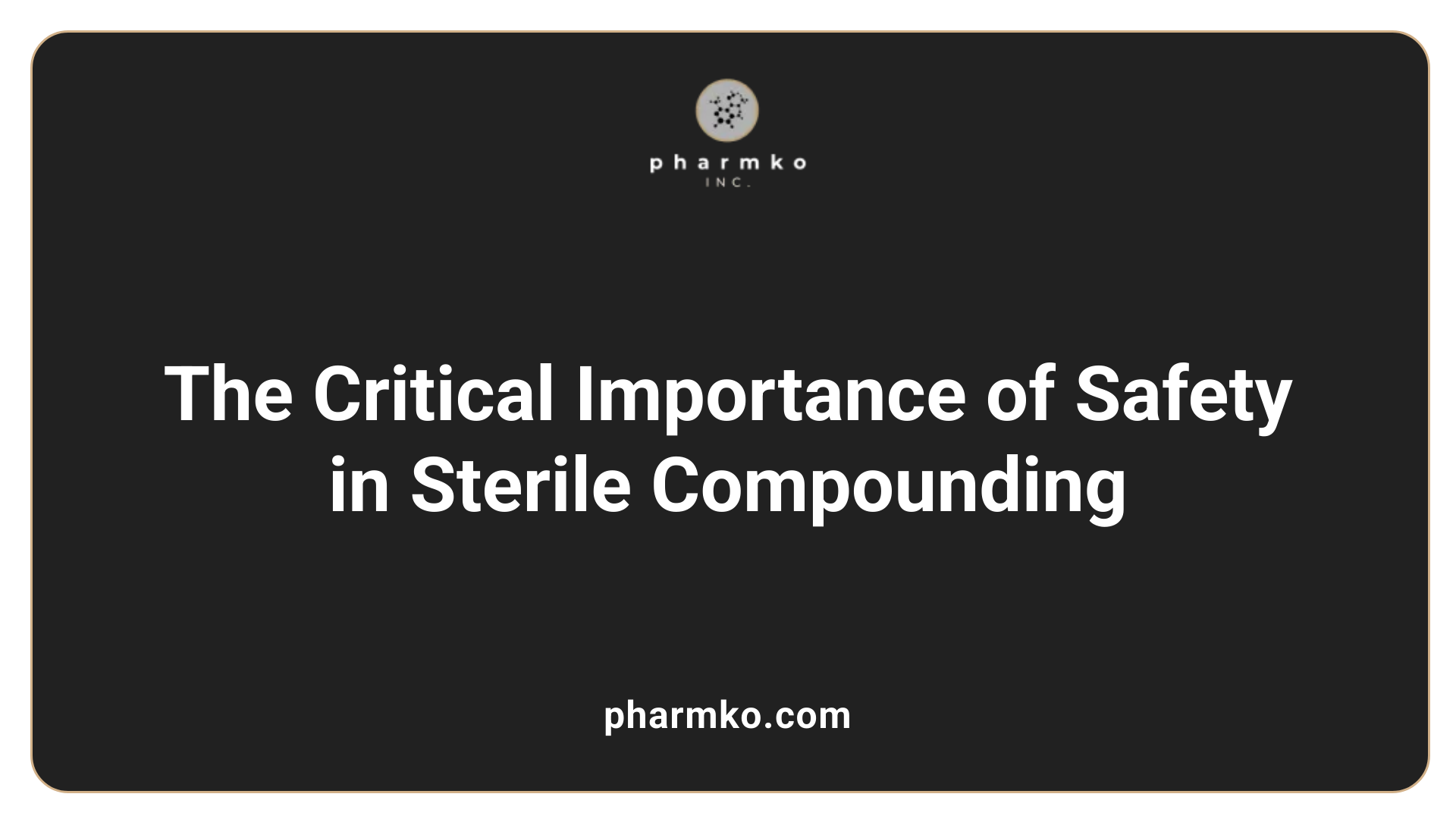
Why Are Sterile Compounded Medications Required and What Are Their Safety Considerations?
Sterile compounded medications are essential in healthcare to mitigate contamination risks that can pose serious health threats, especially when administered through injections or used in sensitive areas like eyes. Patients receiving these types of treatments are often vulnerable and at risk of severe consequences if sterility is compromised. Therefore, regulations mandate strict adherence to quality standards during their preparation.
Compounding pharmacies must operate within controlled environments utilizing aseptic techniques. This controlled environment enables the creation of sterile compounded medications that meet the stringent requirements outlined in USP General Chapter <797>. These guidelines are designed to ensure the safety and sterility of compounded sterile preparations (CSPs) and help avert microbial contamination.
The tragic outbreak linked to the New England Compounding Center highlighted the peril of lax standards and reinforced the importance of rigorous compliance with sterile compounding practices. Adherence to these standards is not merely a regulatory necessity; it's a critical measure to safeguard patient health, reducing the risks of morbidity and mortality associated with contaminated medicinal products. Thus, the emphasis on maintaining sterility is paramount for the integrity of patient care in sterile compounding procedures.
Distinctions and Advantages of Compounded Injectables
How do compounded injectables differ from mass-produced medications and address drug shortages?
Compounded injectables stand out from mass-produced medications primarily through their tailored nature. Unlike commercially available drugs, which are manufactured on a large scale and meet broad population needs, compounded injectables are designed to meet the specific requirements of individual patients. This customization can involve adjusting dosages, removing allergens, or reformulating a drug for improved ease of administration.
The compounding process allows pharmacists to create formulations that cater to unique patient populations, such as children who may require flavored liquids instead of pills, or elderly patients who struggle with standard dosage forms. Such personalized medications enhance adherence, ensuring patients receive the appropriate therapies tailored to their medical conditions.
One significant role of compounded injectables is their capacity to address drug shortages, particularly in sterile forms. When commercially available medications are not in stock, compounding pharmacies can replicate these products under strict aseptic conditions, providing necessary alternatives without compromising patient care. However, it is important to note that compounded medications typically have shorter shelf lives and present potential risks, such as contamination or incorrect dosages.
To summarize, compounded injectables are vital in healthcare as they bridge the gap when mass-produced options are insufficient, ensuring patients with specialized needs can access suitable therapies. Their role is crucial, especially during times of drug shortages, where they offer essential treatment options for those who face barriers with standard medications.
Examples of Sterile Compounded Medications
What are some examples of sterile compounded medications?
Sterile compounded medications play a vital role in modern healthcare. Common types include:
- Total Parenteral Nutrition (TPN) : Essential for patients who cannot eat or absorb nutrients through their digestive systems.
- Injectable Antibiotics : Customized dosing for specific infections, ensuring effective treatment.
- Chemotherapy Agents : Tailored formulations needed for individual cancer treatments.
- Intravenous (IV) Solutions : Include infusion solutions that maintain hydration and deliver necessary medications.
Additionally, sterile compounded medications encompass ophthalmic preparations, such as eye drops and ointments, which require stringent sterility to safeguard eye health.
Applications in patient care
Sterile compounding is pivotal for patient populations needing personalized therapy. For example, preparing sterile compounded injectables ensures safe administration of medications directly into the bloodstream, critical for treating life-threatening conditions like cancer and HIV/AIDS. The meticulous adherence to standards, such as USP Chapter <797>, guarantees the highest level of sterility, reducing contamination risks and enhancing patient safety, especially in vulnerable groups like pediatric and elderly patients.
The Essential Role of Sterile Compounding Pharmacists
What role does a sterile compounding pharmacist play in healthcare?
Sterile compounding pharmacists are pivotal in the healthcare system, particularly when patients have specific medication needs not met by standard products. They craft personalized medications that must be prepared in a sterile environment, addressing challenges like allergies to ingredients or the inability to swallow pills.
The preparation of compounded sterile preparations (CSPs) must adhere to strict quality standards and safety protocols, such as those outlined in the United States Pharmacopeia (USP) Chapter <797>. This involves meticulous attention to aseptic techniques and maintaining a controlled clean-room environment to minimize contamination risks.
These pharmacists play a multifaceted role. They train pharmacy technicians in sterile preparation practices, ensuring compliance with regulatory standards and enhancing overall patient safety. By fostering expertise in staff and maintaining high-quality assurance protocols, they help prevent infections that could compromise patient health.
Impact on patient care and outcomes
The impact of sterile compounding pharmacists on patient care is significant. Customized medications allow healthcare providers to offer tailored treatment regimens to populations such as pediatrics, geriatrics, or patients with rare diseases.
For instance, compounded medications can be formulated into more palatable forms for children or adjusted in dosage for elderly patients who may struggle with standard medication formats. Moreover, pharmacists enable vital access to medications during drug shortages or when FDA-approved drugs are discontinued. This personalized approach not only improves medication adherence but also enhances therapeutic effectiveness for patients, ultimately leading to better health outcomes.
| Role of Sterile Compounding Pharmacists | Impact on Patient Care |
|---|---|
| Prepare personalized compounded sterile medications | Tailored treatment options |
| Ensure compliance with regulatory standards | Enhanced patient safety and reduced infection risks |
| Train pharmacy technicians | Improved adherence, especially in vulnerable populations |
| Maintain high-quality assurance protocols | Directly leads to better health outcomes |
Personalized Medicine and Sterile Compounded Injectables
Importance of personalized medicine
Personalized medicine revolves around customizing medical treatments to meet individual patient needs. This tailoring is especially beneficial when standard FDA-approved medications might cause issues for patients, such as allergic reactions or dosing challenges. For example, patients with allergies to specific ingredients in commercial drugs can have their medications compounded to exclude those allergens. This flexibility is crucial in ensuring patients receive effective treatments without adverse reactions.
Advantages of tailored sterile injectables in patient care
Sterile compounded injectables extend the concept of personalized medicine to injectable treatments. These formulations are created in clean-room environments following strict aseptic techniques, ensuring they remain free from contaminants. Given their direct administration route, they can deliver medication quickly and effectively, which is vital for treating acute conditions like cancer or high-risk infections.
Key benefits of tailor-made sterile injectables include:
- Custom Strengths and Dosages: Pharmacists can prepare sterile injectables with precise dosages tailored to individual needs, enhancing treatment effectiveness.
- Improved Patient Adherence: Custom formulations, available in forms like flavored liquids or easy-to-swallow options, lower barriers for patients struggling with standard dosing forms, especially pediatric or elderly populations.
- Addressing Drug Shortages: In times of national shortages, compounded injectables can fill gaps, ensuring that patients continue receiving essential treatments.
In summary, personalized sterile compounded injectables play a pivotal role in enhancing patient care by catering to specific medical requirements and promoting medication adherence.
Summary and Future Perspectives
Sterile compounded injectables symbolize a pivotal aspect of personalized medicine, embodying the shift towards treatments that align closely with individual patient needs and preferences. Beyond their immediate benefits in addressing unique health challenges and enhancing medication adherence, they play a significant role in bridging gaps during drug shortages, ultimately improving the quality of care. As regulations evolve and technology advances, the continuous refinement of compounding practices promises an even greater integration of these tailored therapies into routine healthcare. Embracing this personalized approach not only elevates patient care today but also sets a robust foundation for the future of medicine.
References
- Compounding and the FDA: Questions and Answers
- Sterile injectables: What they are and how they're manufactured
- The Benefits of On-Site Sterile Compounding in a USP Clean Room
- An Overview of Compounding - The Clinical Utility of ... - NCBI
- Compounding FAQs - American Pharmacists Association
- What are compounded drugs, and are they safe? - MedicalNewsToday
- Compounded medication for patients with rare diseases
- Sterile Compounding Toolkit - The Pharmacy Technician Society
- The Role of Pharmaceutical Compounding in Promoting Medication ...



